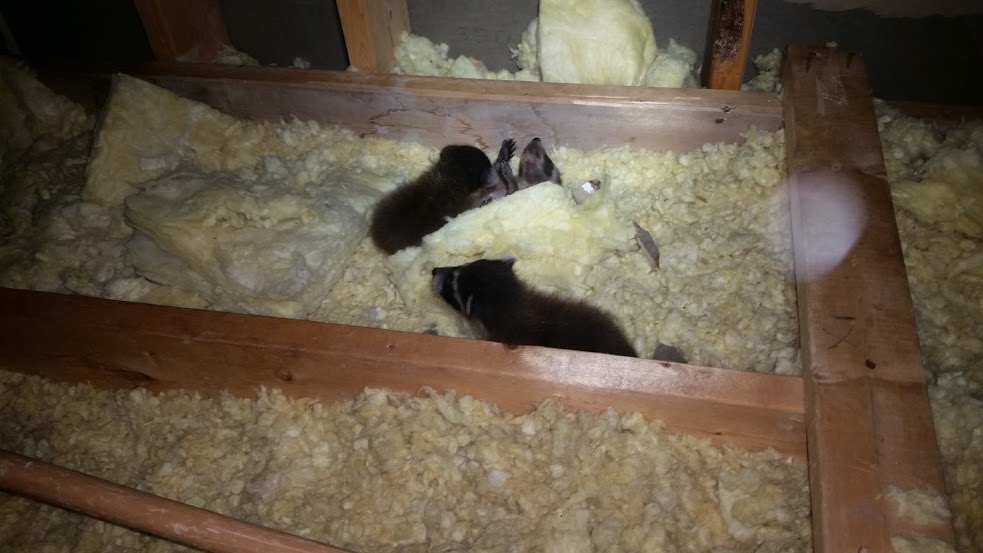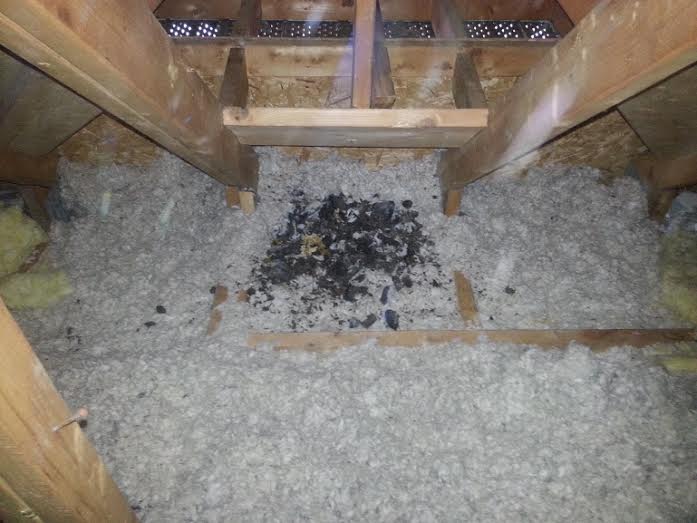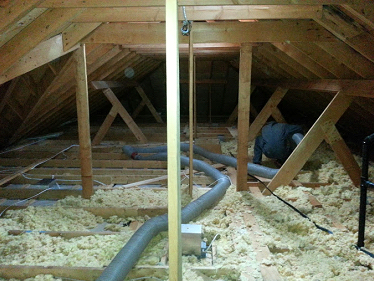Spring is here in Mississauga, and many homeowners are finding themselves with an attic or chimney full of raccoon babies. “How did they get inside my home, you wonder. “Why didn’t I hear anything?”
Many people believe raccoons hibernate over the winter, but they do not. They do enter a torpid, inactive state, when temperatures around them fall below minus 10 degrees celsius. While this is not true hibernation, the raccoon can sleep in a curled position in their den for weeks, significantly lowering the amount of energy they need to survive.
Their body temperature lowers and increased insulin production decreases their blood sugar. On warmer days, the raccoon will wake up and spend some time foraging for food before returning to their den. This gives the raccoon many of the benefits of hibernation, while still keeping them alert to predators and potential food sources. Torpor will last longer for raccoons in colder climates like southern Ontario, while those in warmer southern climes may never enter the state.
Raccoons combat starvation in harsh Canadian winters by building up fat stores in the summer and autumn months. Over the course of the winter, a raccoon may lose between 14 and 50 percent of their body weight, depending on how far north they live and the severity of the winter, making those extra pounds from summer essential to their survival. The fat builds most heavily in the tail, which is believed to help the raccoon stay warm by wrapping it around himself in the cold.
Raccoons being in torpor could spell trouble for Mississauga homeowners. They could be hosting raccoons in their home, but not be aware of it due to the inactivity. Raccoons could be in torpor for most of the winter, and then give birth to a litter of babies in the spring.

This is why it is so important to have prevention work done on your home and structures around your property. This will prevent raccoons from getting in, spending the winter in your attic and possibly giving birth to a litter of babies in your attic.
Once babies are born, the raccoon removal process becomes much more difficult and complex. The babies are usually immobile for up to 10 weeks so they need to be removed humanely, by hand. It is important to have professionals handle any baby removal. We have the training, equipment and experience to locate the babies, remove them humanely and reunite them with their mom outside the home, using our heated ‘baby box’. After the babies are removed, our Wildlife Technicians will seal up any entry holes on the home or structure, ensuring the raccoons cannot get back in.

It is also important to make sure to have any urine or feces the raccoon may have left over the winter cleaned up by professionals. Raccoon feces and urine can be dangerous, containing Baylisascaris procyonis and Leptospirosis.
Raccoons are the primary host of Baylisascaris procyonis, a roundworm that can be harmful to people. Roundworm eggs are passed in the feces of infected raccoons, and people become infected by ingesting eggs. Anyone who is exposed to environments where raccoons frequent is potentially at risk.
Leptospirosis is a bacterial infection that many animals, including raccoons, can transmit. Raccoons excrete the disease-causing organism in their urine. Raccoons may also be carrier of ticks or fleas.

It is very important to have professionals do the cleanup, as we have the proper health and safety equipment required for the job. Proper raccoon removal, disinfection and other required services should be done by someone who is knowledgeable and experienced with what must be done. Otherwise improper removal may actually cause more potential for disease exposure.
This will include using the proper disinfecting compounds to remove any disease organisms in the area where the waste was located. It will also include removing any insulation that may have been contaminated by the urine or feces, and replacing it with new insulation. This ensures that your attic’s insulation is up to code and you are not losing money on heating bills.

If you are a resident of Mississauga or the surrounding area and have raccoons in your home, it is very important to call professionals to deal with the removal due to the rabies outbreak that is still active in the area.
Since the first case of raccoon rabies was discovered in Hamilton in December, the number of infected raccoons and skunks has risen to 72 cases, in the city alone. The total count of raccoon rabies cases throughout the province is 77.
For your health and safety, never approach or deal with wildlife on your own. Call Skedaddle today to solve your problem and clean up the mess 416-417-2939


